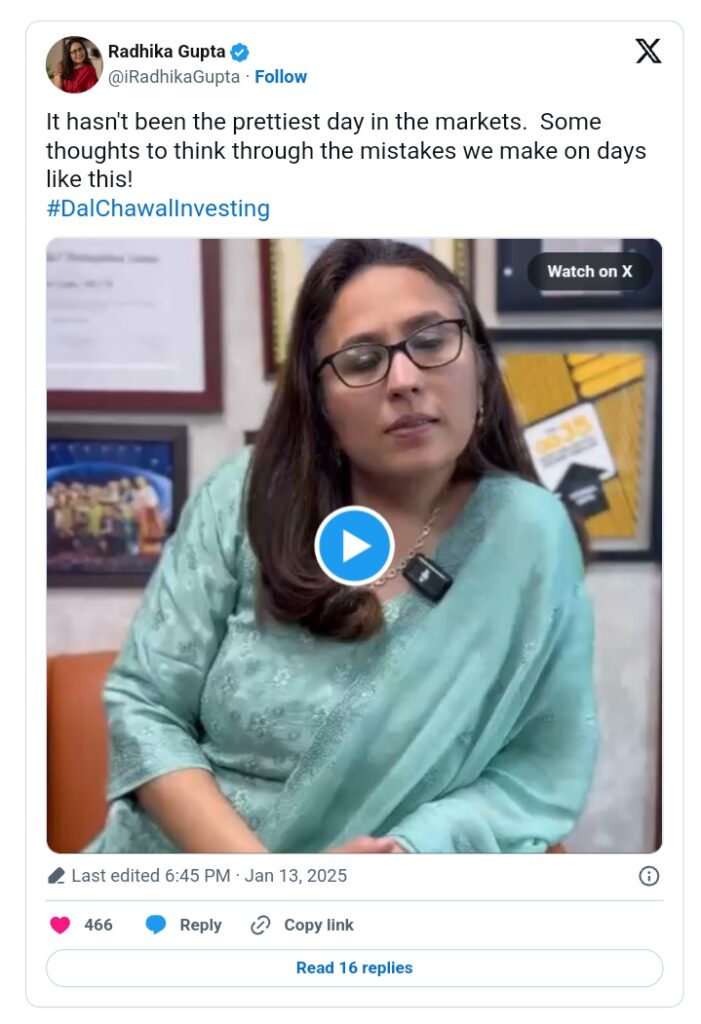Radhika Gupta’s Insights on Navigating Market Volatility

In light of the Nifty index’s 12% decline from its peak in September, Radhika Gupta, CEO of Edelweiss Mutual Fund, emphasizes the importance of managing emotional responses during market downturns. She advocates for a balanced investment strategy rather than succumbing to the urge to shift entirely to safer assets.
As of now, the Nifty index stands at 23,238, down 12% from its 52-week high of 26,277. The midcap and small cap indices reflect similar declines, indicating a broader market trend. Gupta’s advice is rooted in the understanding that market fluctuations are inevitable, and successful investors are those who can remain calm and focused on their long-term objectives.

1. Embracing Market Volatility
Gupta highlights that market volatility is a natural occurrence. Instead of reacting impulsively, investors should focus on their long-term goals. The temptation to panic during downturns can lead to poor decisions, such as selling investments at a loss or buying into overpriced assets.
2. Avoiding Binary Thinking
During market declines, many investors consider moving their entire portfolio to cash or fixed instruments. Gupta advises against this binary approach, suggesting that it’s essential to find a middle ground. By diversifying investments and not relying solely on safe instruments, investors can better weather market fluctuations.
3. Diversified Portfolio Strategy
Gupta recommends maintaining a well-balanced portfolio that includes both equity and debt. Products like hybrid funds or balanced advantage funds can provide exposure to both asset classes, helping to mitigate risk while still allowing for growth potential.
4. The Importance of Continued Investment
One common emotional response during a market downturn is to halt investments, particularly through SIPs. Gupta argues that this is counterproductive, as market dips often present opportunities to buy at lower prices. Continuing to invest during these times can lead to better long-term returns.
5. Cultivating Emotional Resilience
Gupta emphasizes the need for emotional resilience in investing. Recognizing that market cycles will include ups and downs can help investors maintain a more stable approach. By controlling emotional reactions and sticking to a well-thought-out investment strategy, individuals can navigate challenging market conditions more effectively.
Final Takeaways
Radhika Gupta’s insights provide a valuable framework for investors facing the challenges of a volatile market. Key takeaways include the importance of embracing volatility, avoiding binary thinking, maintaining a diversified portfolio, continuing investments during downturns, and cultivating emotional resilience. By implementing these strategies, investors can better navigate market fluctuations and work towards achieving their long-term financial goals.